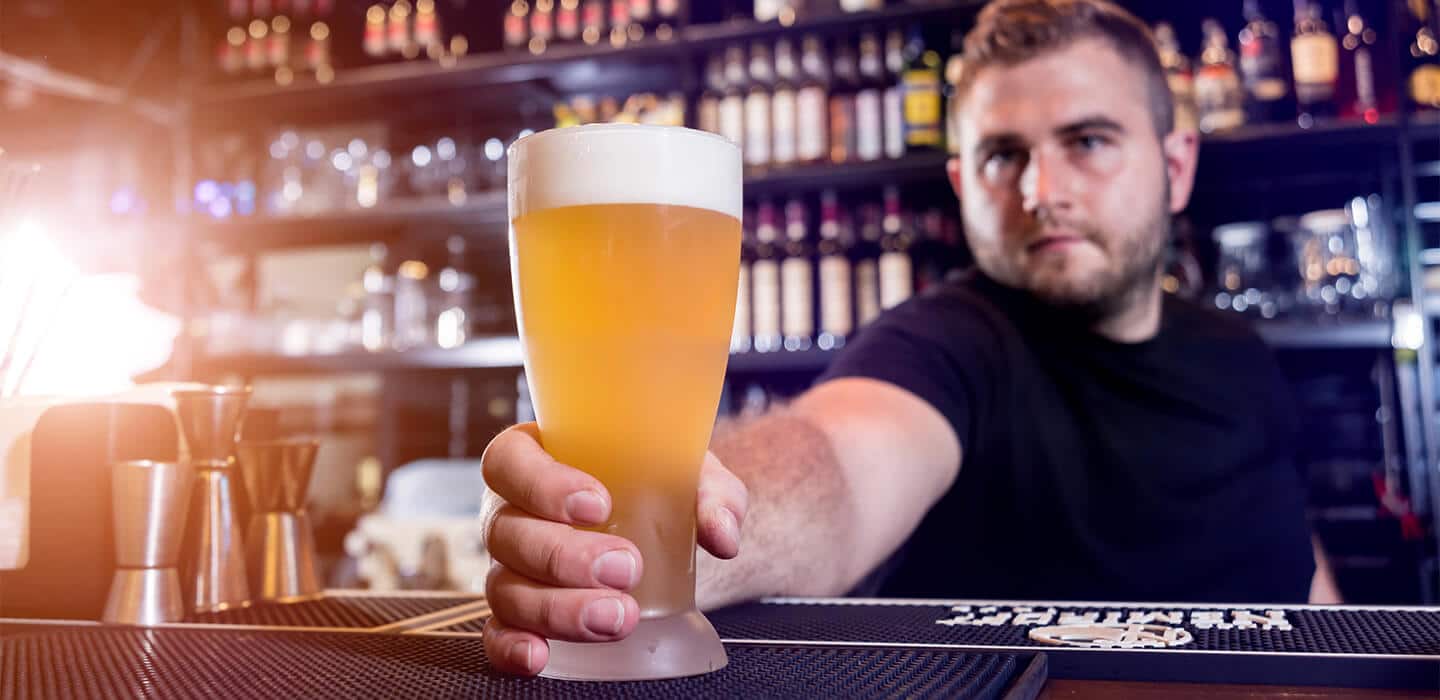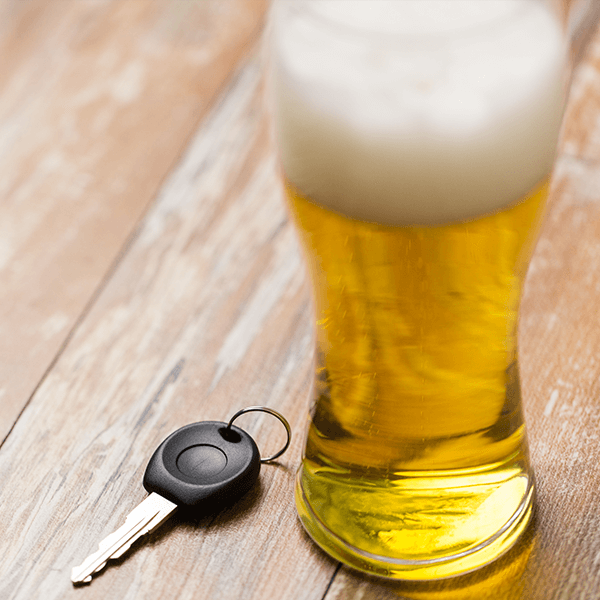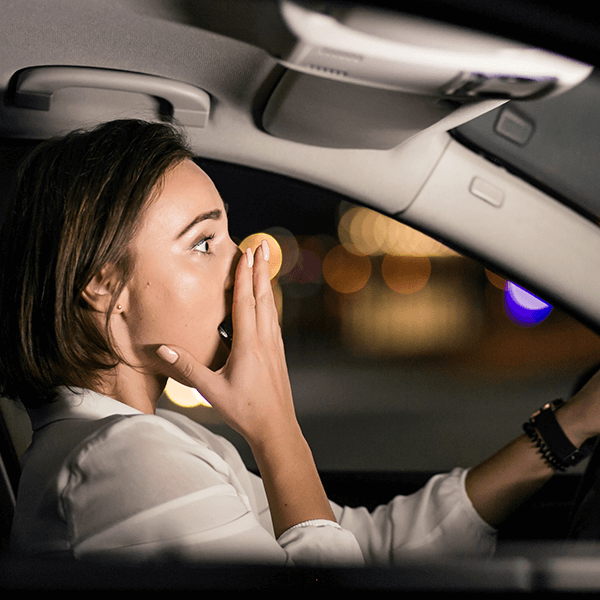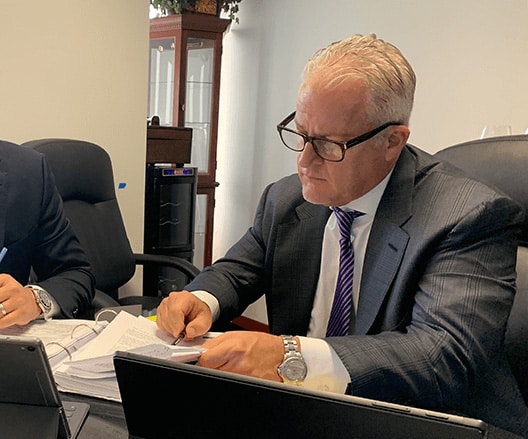
Drunk or impaired driving can have a long-lasting impact on both the driver and other people on the road. A DUI exposes a drunk driver to lawsuits for damages arising out of a victim’s injuries or death. However, the drunk driver may not be insured, or may not have adequate insurance to address the severe injuries that result in a drunk driving collision.
Forty-three (43) states and the District of Columbia have enacted dram shop laws in response to the large number of DUIs that cause catastrophic injuries or wrongful deaths. States that do not have dram shop laws include Virginia, South Dakota, Nevada, and Maryland. California has enacted a law specifically prohibiting civil liability of people, bars, and alcohol retailers that serve alcoholic beverages to those that subsequently cause injury or death to others.
“Dram shops” were originally establishments that sold gin in 18th-century England. Dram shop laws make a business or person strictly liable to a plaintiff if the business or person sold or gave alcoholic beverages to someone who was obviously intoxicated or close to being intoxicated, and the drunk patron caused injuries to the plaintiff. This means that an injured plaintiff can sue the bar, alcohol retailer, or private citizen who served the drunk driver. Many states however have safe harbor laws to protect the establishments from liability.
In many cases, a bar, alcohol retailer, or individual is covered by insurance that more adequately compensates the plaintiff than the drunk driver’s automobile insurance. For example, a host of a wedding who continues to serve someone who is clearly drunk may have party insurance that will cover the damages.
In some cases, insurers for commercial businesses expressly exclude coverage for “liquor liability,” and this coverage will need to be added to the business’ coverage by endorsement for an additional premium. Generally, social host liquor liability is included in personal liability and commercial general liability policies, but you should check your specific policy or ask the entity catering your event for proof of insurance for liquor liability to make sure.
Liability in a Dram Shop Case
It can be difficult to prove the fault of a business or social host under dram shop laws because different people have differing tolerance levels. A bartender may not know that someone is drinking on an empty stomach, or may believe based on past experience with a patron that he or she is walking home, rather than driving a car.
The Texas Dram Shop Act enables people to sue bars and other alcohol serving establishments when over-served patrons cause damages.
Despite the fact that drunk driving has been a plague on Texas highways for as long as cars have been around, until a little less than 30 years ago, there was no way for victims of drunk driving accidents to sue bars that over-served patrons. Without getting into the legal minutiae, accidents were considered the fault of the person who drank too much until the landmark Texas Supreme Court decision in El Chico v. Poole (1987), changed that, creating a cause of action for those hurt in these accidents to seek compensation from bars.

These cases are about more than just money. The Lidji Firm makes bars pay dearly, but we also make them change how they operate.
Dram shop cases are time sensitive. If you’d like to discuss your potential case please call us.
What Does the Texas Dram Shop Act Say About Suing Bars?
The relevant portion of the Texas Dram Shop Act, which gives those injured by unlawful alcohol service the right to sue licensed alcohol providers that over-serve patrons reads as follows:
Sec. 2.02. CAUSES OF ACTION. (. . .)
- (b) Providing, selling, or serving an alcoholic beverage may be made the basis of a statutory cause of action under this chapter of this code upon proof that:
- (1) at the time the provision occurred it was apparent to the provider that the individual being sold, served, or provided with an alcoholic beverage was obviously intoxicated to the extent that he presented a clear danger to himself and others; and
- (2) the intoxication of the recipient of the alcoholic beverage was a proximate cause of the damages suffered.
In plain English, this portion of the Texas Dram Shop Act sets up the three conditions required before an injured person can pursue a case against a bar:
- The establishment must have served an obviously intoxicated person.
- The intoxication of the illegally served patron must have been the proximate cause of an accident.
- Injuries or death, and the civil damages associated with them, must have resulted from that accident.
It is only when all of these conditions are met that a person can pursue a dram shop lawsuit against a bar. While some might disagree with the idea of being able to file suit against a bar at all after a drunk driving crash, because after all (they reason) it is the person who drank too much that should be responsible, there are a couple of things to keep in mind.
To be clear, the Texas Dram Shop Act does not remove the drunk driver’s liability for injuries that they cause to third-parties. If a guy gets drunk at a bar and plows into a minivan carrying a family, the family has just as much a right to go after the drunk driver financially as they did before it was passed. At the same time the law helps provide a remedy for what was, until El Chico v. Poole, an inconsistency that left many victims with no recourse against a negligent bar that contributed to their losses.
It has been illegal for ages in Texas to sell alcohol to a person who was already drunk. Before the Texas Dram Shop Act passed, there was no civil remedy for those harmed by the actions of bars that broke the over-service law.
In short, a bar could break the law, and, while they may have received a trivial fine from the Texas Alcoholic Beverage Commission, they could tell the victims who were injured by their over-service, Whatever, there’s nothing you can do to us. The changes to the law meant that bars now had some civil liability for what was, and still is, an illegal behavior
Does the Texas Dram Shop Act Only Apply to Bars and Restaurants or Can You Sue Individuals?
The relevant law to answer this question is found in Section 2.01 of the Alcoholic Beverage Code:
(1) “Provider” means a person who sells or serves an alcoholic beverage under authority of a license or permit issued under the terms of this code or who otherwise sells an alcoholic beverage to an individual.
The crucial part of the definition of an alcohol “provider” is that the alcoholic beverage must be sold. This typically excludes what are called “social hosts,” most commonly people having parties within their own homes among friends. While it is still morally wrong for them to over-serve their guests, unless they charge admission to their parties, or charge money for their alcohol, they cannot be sued under a dram shop cause of action.

One mistake that attorneys who are not familiar with dram shop lawsuits make when they come across this section of the law is that they misread it as saying that only licensed providers can be sued in a dram shop lawsuit. While it is a reasonable misreading, it is inaccurate nonetheless. Again, the crucial factor for determining liability is whether or not the defendant sells alcohol.
Dram Shop Lawsuits Are the Exclusive Remedy for Alcohol-Related Injuries
Section 2.03 of the Alcohol Beverage Code holds that:
- (a) The liability of providers under this chapter for the actions of their employees, customers, members, or guests who are or become intoxicated is in lieu of common law or other statutory law warranties and duties of providers of alcoholic beverages.
- (b) This chapter does not impose obligations on a provider of alcoholic beverages other than those expressly stated in this chapter.
- (c) This chapter provides the exclusive cause of action for providing an alcoholic beverage to a person 18 years of age or older.
In a nutshell, this section makes it clear that dram shop lawsuits are the only way for victims of unlawful alcohol service to recover damages for their injuries. This means that when it comes to alcohol-related injuries, this is the only applicable law. It means that gross negligence causes of action, which penalize folks who do something completely insane that shocks the senses, and premises liability claims, do not apply in any case where the over-service of alcohol is alleged.
The exclusive remedy provision matters, because the threshold that bars have to meet to avoid being sued is so low. Basically, as long as they don’t serve already intoxicated people, they can indirectly cause as much chaos as they like and not face any consequences. In this way, one can see that the Texas Dram Shop Act really was a compromise between those who wanted to have open-season on every kind of misconduct that a bar could engage in when serving alcohol, and bars, who wanted to avoid having any liability for their bad behavior.
Mr. Lidji’s ten (10) years as a bartender and waiter provide him a unique skill set in handling dram shop cases.
Speak with a National Dram Shop Liability Lawyer Today
Reasons to Choose
The Lidji Firm
No Fees Upfront
No recovery = no fees. If we don’t win your case, you won't pay us a dime
24/7 Help for You
We answer calls and emails after hours and on weekends
Credibility & Experience
We closed thousands of cases for our clients over 37 years
Limited Case Load
We limit our cases to devote our time and energy to the clients we represent
Track Record of Success
Our clients have received substantial awards from our litigation practices
Reputation for Success
Our attorneys have successfully settled hundreds of personal injury cases and 100+ product defect cases to conclusion



What’s your case worth?
Submit for a Free Case Evaluation
We represent clients from all across Texas and nationwide. If you were injured by any accidents from the negligence of another person or business, or because of a defective product, a bad drug, or a healthcare provider, The Lidji Firm offers a complimentary and confidential case review to help you understand your options and possible courses of action.
The consultation costs nothing and the conversation is confidential. Compensation may be available in the form of medical expenses, lost income, pain and suffering, property damage and more.
Our firm is available to answer your questions and address your concerns, and we are prepared to provide your case with the caring counsel and strong advocacy needed to fight for justice on your behalf.
